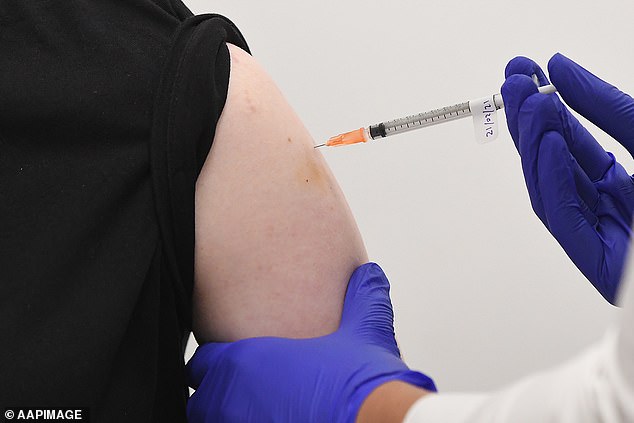Covid vaccines prevent less than one in ten infections six months after administration, according to a study.
The New Zealand researchers reached their conclusion after evaluating data on more than 5 million people from December 2020, when vaccines were first rolled out in the country, through February of last year.
Of these, 4 million were vaccinated and about 1 million never received the Covid vaccine; vaccinated people were matched by age and sex with their unvaccinated counterparts.
The scientists then assessed the vaccines’ effectiveness against a range of different Covid outcomes, including infection, hospitalisation and death, using data from patients.
Publish your findings in the New Zealand Medical JournalResearchers evaluated the results based on whether people received the second booster dose of the Covid vaccine.
The New Zealand researchers reached their conclusion after evaluating data on more than 5 million people from December 2020, when vaccines were first rolled out in the country, through February of last year.
While the vaccine was found to offer sustained protection against deaths from the virus, protection against infection was found to decline dramatically.
It was found that in the first month of applying the vaccine, 57% of infections were stopped, but six months later that figure dropped to just 9.9%.
Vaccine-based protection against hospitalization from Covid was better, although there was also a significant drop.
Vaccinated people enjoyed 82 percent protection against hospitalization from the virus in the first month after contracting the virus, but this dropped to just 49 percent by month six.
The authors noted that since there were no Covid deaths in the vaccinated cohort that received the second booster dose, a comparative analysis of this outcome was not possible.
This is not the first study to find that Covid vaccines lose effectiveness over time.
The exact number depends on the stage of the global pandemic, which variant was circulating at the time, and can also vary by brand.
A 2021 US study found that Covid vaccines used in the United States dropped from 85 percent effectiveness against infection to around 50 percent within six months.
A Qatari study, also from 2021, even found that Pfizer’s Covid vaccine was only 20 percent effective at preventing people from becoming infected after six months.
Covid vaccines, which put an end to crippling lockdowns, are losing their protective power due to two factors.
First, the initial surge of antibodies designed to attack the Covid virus that the body produces fades over time, though experts say some long-term protection persists.
Secondly, the virus itself evolves over time and new variants evolve with slight differences that mean they are better able to dodge the protection offered by vaccines, which were designed to combat older strains of Covid.
That’s why subsequent Covid vaccination campaigns have used updated booster shots, designed to target new strains of the virus that are now circulating more widely.

The vaccine was found to stop 57 per cent of infections among Kiwis who received it in the first month, but this dropped to just 9.9 per cent six months later.
The phenomenon of waning protection is not unique to Covid, either; that is why some people, such as the elderly and health care workers, are offered a new flu vaccine each year designed to target new versions of the virus that are spreading.
It should also be noted that the same basic problem occurs with natural immunity to Covid infection, and that this protection also decreases over time.
The authors said that while their study was strengthened by its large number of participants and reliable, crowd-sourced data, it had a number of limitations.
One of them was that the decrease in the number of unvaccinated people could have influenced the results, leading to a possible underestimation of the vaccine’s efficacy.
Another was that they were unable to track the specific brand of Covid vaccine that people who were injected received, meaning differences by this metric could not be measured, although they did note that most people received the Pfizer vaccine.
Additionally, the authors said they were unable to distinguish between different Covid variants given the dominance of the Omicron variant for most of the study period.
They said future studies were warranted, both to track the effectiveness of the vaccines beyond six months and to track differences in outcomes by vaccine type and Covid variant.


